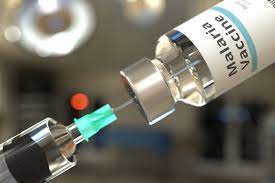APA-Addis Ababa (Ethiopia) – Long ravaged by malaria, Africa must step up efforts to protect its populations against the disease.
Gathering in the Ethiopian capital for the launch of the African Union’s Malaria Progress Report 2023, leaders from across the continent warned that progress towards eliminating the disease was “losing momentum.”
Despite “some positive advances” in the fight, Africa faces “growing threats” and the “risk of a resurgence in malaria incidence and mortality.”
“If we don’t act now, we risk seeing an increase in malaria mortality as a result of underfunding, biological threats and climate disruption,” said Carlos Pinto Pereira, Foreign Minister of Guinea-Bissau, reading from a speech by President Umaro Sissoco Embaló, who is also Chair of the African Leaders Alliance against Malaria (ALMA).
“However, the fight against malaria offers a viable path towards a fully integrated approach, where each sector contributes to efforts to build sustainable and resilient health systems,” he stressed in a statement seen by APA on Wednesday.
The document points out that “critical budget shortfalls” in malaria control programs, coupled with the ongoing global financial malaise, the effects of climate change, insecticide and drug resistance, and humanitarian situations, are creating “unprecedented crises that must be urgently addressed if malaria is to be prevented from resurfacing.”
The sixth annual report on progress against the disease in Africa reveals a profound resource gap, with member states facing an estimated $1.5 billion shortfall by 2026 just to maintain current, inadequate coverage of essential malaria interventions.
This shortfall, combined with the global financial crisis and the increased cost of key products needed to counter the threat of resistance, could lead to a “doubling of malaria mortality,” bringing back the spectre of the worst-case scenarios feared at the start of the COVID-19 pandemic, the reporters say.
What’s more, if the continent is to make progress toward elimination, an additional $5.2 billion in annual funding is needed to fully implement national strategic plans. Member states, in collaboration with national and global multisectoral partners, must act quickly to close these gaps and fully fund national malaria strategic plans, they recommended.
On the other hand, the report recognises the long-term investments and heroic efforts of countries, partners and community health workers across Africa in the fight against malaria.
However, the continent still bears a heavy burden, accounting for 94% of total malaria incidence (233 million cases) and 95% of mortality (580,000 deaths). Children continue to bear the brunt of the disease, with about 78% of all malaria deaths in the region occurring in children under the age of five.
“Existing control tools are threatened by resistance. To get back on track, we need to add new weapons to our arsenal against malaria. On the positive side, we have what it takes to tackle these threats effectively,” said Minata Samate Cessouma, Commissioner for Health, Humanitarian Affairs and Social Development at the African Union Commission.
“These new tools are more effective, but they cost more. Local production and efforts by member states and partners to influence the market can reduce some of the costs and make products affordable and accessible, which will ultimately lead to greater impact,” she added.
ODL/te/lb/as/APA


